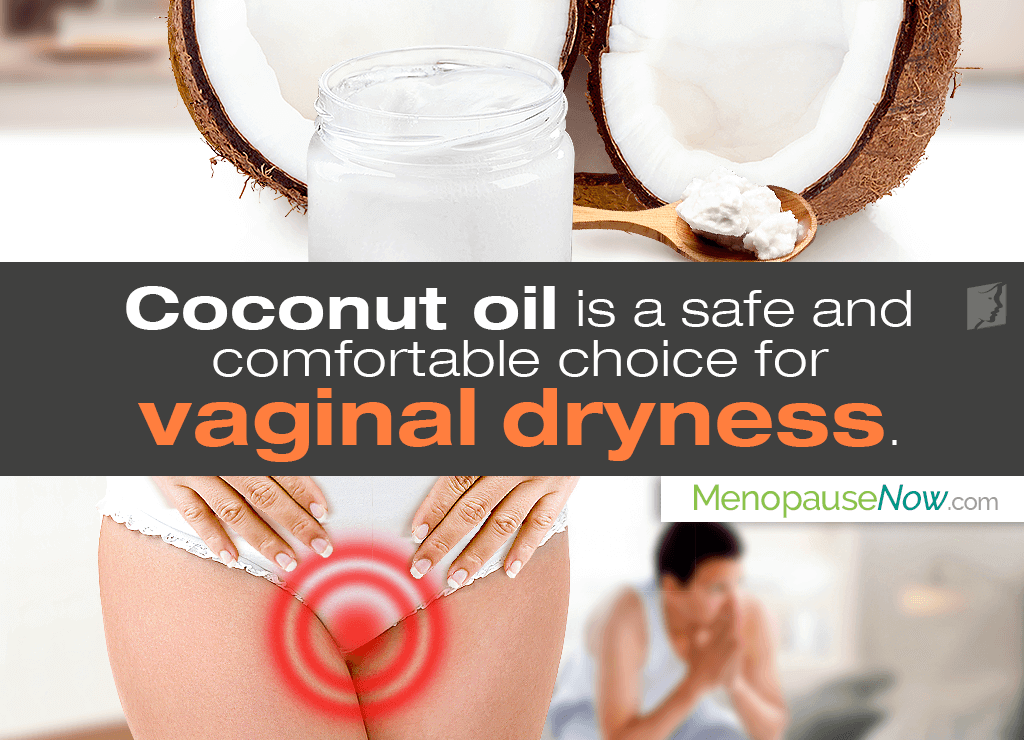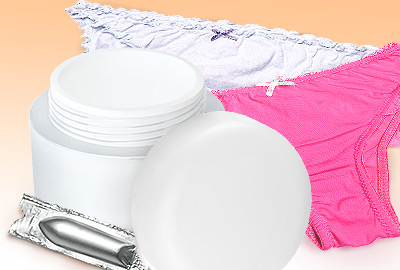Vaginal dryness is an extremely common symptom of the menopausal transition with more than half of women still suffering from it in postmenopause.1 Fortunately, there are various home remedies a woman can try to cope with this uncomfortable symptom, one of them being the use of coconut oil.
Continue reading to learn more about using coconut oil for vaginal dryness during menopause as a means to a pleasurable end.
What Is Vaginal Dryness?
Vaginal dryness results from insufficient natural lubrication, which leads to inflammation and thinning of the vaginal walls. It can be identified by a stinging, itching, or burning sensation in the vagina, and even by pain or light bleeding during sex.
Vaginal dryness is usually caused by low estrogen levels, which is why it affects those going through menopause and postmenopause.
Pros of Using Coconut Oil for Vaginal Dryness
For women looking for natural lubricants, coconut oil has several advantages:
- It moisturizes and soothes the vaginal area.
- It's cheap, making it a cost-effective alternative.
- It's antibacterial and anti-fungal.
- It is easy to find in most grocery stores.
- It is natural and does not contain artificial ingredients.
- Unlike synthetic lubricants, natural oils like coconut oil can safely be used inside the vagina.
Cons of Using Coconut Oil for Vaginal Dryness
While generally safe and well tolerated, using coconut oil for vaginal dryness does have certain disadvantages, including:
- It has a distinctive scent, which some may find off-putting.
- It can break down the latex in some condoms, thus increasing the risk of unplanned pregnancy and sexually transmitted diseases (STDs).2
- It can potentially affect vaginal pH, making a woman more prone to infections.
How to Use Coconut Oil for Vaginal Dryness
To work as a lubricant, coconut oil can be applied on the opening and inside the vagina right before intercourse.3 You may also apply it on the penis or sex toys, if using.
Women can also use coconut oil as a moisturizer during the day. To do so, apply a small amount of the oil in and around the vagina several times per week.
To decrease the risk of vaginal infections, it is important to always wash hands before applications.
Further Tips to Deal with Vaginal Dryness
Certain factors can trigger or worsen dryness. Try avoiding the following:
- Underwear made of synthetic materials, which may irritate the area.
- Scented or harsh soaps, cleansers, and toilet paper, including douches and laundry detergents
In addition, there are other methods to help with intimacy for those who are suffering from vaginal dryness or who are unsure of their need for lube, including:
- Try low-impact exercises for vaginal dryness to strengthen and relax vaginal muscles.
- Take more time for foreplay to increase levels of natural lubrication.
- Choose the right type of underwear to prevent vaginal dryness.
- Induce relaxation through massage, which is an effective way to avoid painful penetration.
- Optimize your diet with various foods to combat vaginal dryness.
Treatments for Vaginal Dryness
While coconut oil for vaginal dryness does help temporarily relieve the symptom, long-term alleviation comes from treating the underlying cause. As aforementioned, in menopausal women, this is usually hormonal imbalance. Click on the following link for more information about natural and effective treatments for vaginal dryness.
Sources
- Cleveland Clinic. (2017). What's Best for Vaginal Dryness - Including Natural Options? Retrieved January 27.2020 from https://health.clevelandclinic.org/best-fixes-vaginal-dryness-plus-natural-options/
- Mayo Clinic. (2018). Vaginal dryness after menopause: How to treat it? Retrieved March 28, 2019 from https://www.mayoclinic.org/vaginal-dryness-after-menopause/expert-answers/faq-20115086
- The North American Menopause Society. (n.d.). Vaginal and Vulvar Comfort: Lubricants, Moisturizers, and Low-dose Vaginal Estrogen. Retrieved March 28, 2019 from https://www.menopause.org/for-women/sexual-health-menopause-online/effective-treatments-for-sexual-problems/vaginal-and-vulvar-comfort-lubricants-moisturizers-and-low-dose-vaginal-estrogen
Footnotes:
- Women's Health Concern. (2019). Vaginal dryness. Retrieved January 27, 2020 from https://www.womens-health-concern.org/help-and-advice/factsheets/vaginal-dryness/
- University Health Network. (2019). Know How to Use Vaginal Moisturizers and Lubricants. Retrieved January 27, 2020 from https://www.uhn.ca/PatientsFamilies/Health_Information/Health_Topics/Documents/Know_How_to_Use_Vaginal_Moisturizers_Lubricants.pdf
- Memorial Sloan Kettering Cancer Center. (2019). Improving your Vulvovaginal Health. Retrieved January 27, 2020 from https://www.mskcc.org/cancer-care/patient-education/vaginal-health




